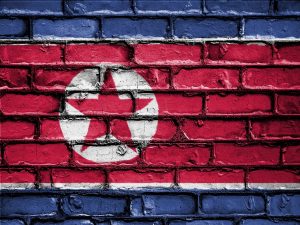With the North Korean regime refusing to report any confirmed cases of COVID-19 within its borders, it is difficult to assess exactly what kind of an impact the virus is having on the lives of North Korean citizens. Even though the country maintains its position of zero cases, sources inside North Korea paint quite a different picture.
According to Daily NK sources inside North Korea, 23 people had died of COVID-19-related symptoms and 82 were under quarantine as of early March. Although the government is trying its best to prevent an all-out health pandemic, its strict measures are having adverse side-effects on its already vulnerable economy. Kim Jong Un began taking measures to curb the spread of the virus very early on, ordering all harbors in Sinuiju port — responsible for a substantial portion of trade with China — to close on January 25. Two days later, he ordered the borders with China to be closed completely.
Trade with China came to an abrupt halt and, with North Korean merchants unable to get goods from China to sell in local markets, a shortage of supplies quickly ensued. This shortage then led to a sharp increase in prices of staple ingredients like flour and rice. By early February, the price of soybean oil had risen by 68 percent compared to early January while flour prices increased by 47 percent. Since then, authorities have imposed strict price limits to prevent prices from skyrocketing out of control but, although the prices of some goods have gone down, the price of rice remains more expensive than usual.
Although most Pyongyang residents can still get by, the situation is much worse in rural areas. A recent survey commissioned by South Korea’s Ministry of Unification showed that nearly half of North Koreans (particularly in border regions) earn income from the private economy. This means that a substantial number of North Koreans must be going through very difficult times now given the border closure with China.
There are also signs that this border blockade is doing more damage to the economy than years of international sanctions against the country. Many ordinary people seem to agree and the price of, for example, gasoline further supports the argument. Even with sanctions in place, the price of gas in North Korea has been fairly stable over the years, fluctuating between 13,000 and 15,000 won per kilogram. The price in mid-March, however, was 16,500 won, up 3,700 won compared to January.
Recent photos taken inside the country also paint a grim picture. The economic impact after two months of closed borders is starting to materialize throughout society, especially in border regions. Economic activity has practically come to a standstill in the border city of Hyesan and, despite the government’s best efforts at denying their existence, homeless people can be seen on the streets wearing torn clothes in freezing temperatures.
The dire economic situation is not only visible in border regions, though. On March 25, the central government sent word to all provincial Party Committees to order main institutions such as schools, munitions factories, and local security departments to acquire one month’s worth of food at their own expense. The order does not, however, apply to the country’s top-level officials or state security agencies. The situation has thus gotten so bad that the state can no longer provide food rations to many important institutions. This latest decision has caused further speculation about the true extent of the damage the economy is incurring.
Despite North Korea’s motto of self-reliance, if this crisis has proven anything it’s how important the border with China really is and how much the North Korean economy does rely on China. Even if North Korea is able to avoid a pandemic caused by COVID-19, it remains unclear how the measures to fight the virus will impact the economy in the medium- and long-term.
But there are some signs of hope. Freight train services between Dandong and Pyongyang resumed on March 23 to bring urgent supplies like food and fertilizer. Moreover, given the improved COVID-19 situation in China, it is likely that cross-border trade and smuggling activities will resume in the near future.
Gabriela Bernal is currently a translator and contributor at The Daily NK and founder of The Peninsula Report, a blog on Korean affairs. She holds two MAs, one in human rights from Sciences Po Paris and one in international peace and security from King’s College London.
































